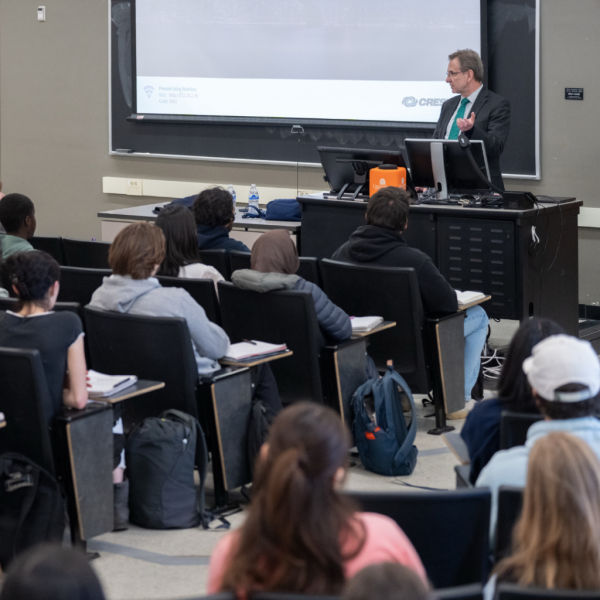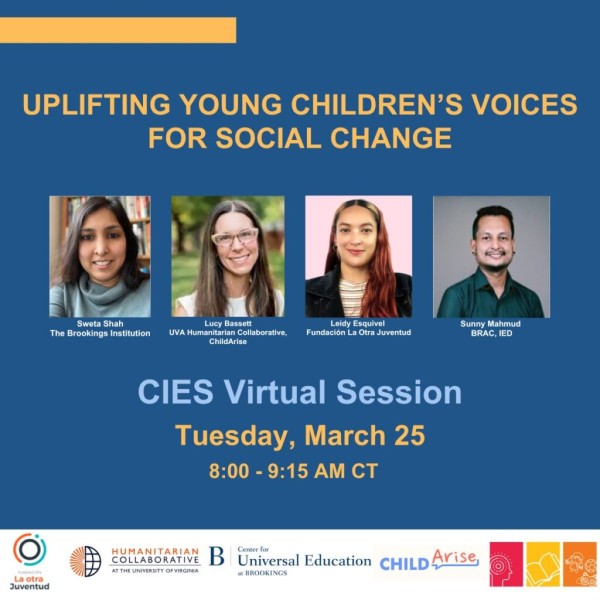Humanitarian Collaborative
SIF165 Humanitarian Collaborative
Project Manager: David Leblang
Approved: Summer 2019
Project Dates: 1/01/2020 - 12/31/2023
Total Funding: $600,000
Current Status: Active
The purpose of this award is to create a cross-Grounds, interdisciplinary research initiative to address global humanitarian crises.
The refugee crisis has increased in intensity over the past few years and will only worsen under climate change. A new camp model must be created that both helps protect children and improves the environment, health, and education for these vulnerable populations. This collaborative cross-grounds project will look at the consequences for long- and short-term refugees and help figure out interventions, testing them in real-world scenarios. A bridge between democracy and sustainability, the project will bring together public health science, social science, statistics, and policy to look for new solutions for organizations like the United Nations.
The UVA Humanitarian Collaborative (HC), is motivated by the premise that greater collaboration between policy and operational organizations and the academic community will enrich both research and practice while increasing UVA’s influence within the global humanitarian engagement sphere. To date, we have achieved the following:
- Overall, we have established 5 thematic areas and this year launched two new global initiatives that integrate research, partner engagement, and advocacy efforts.
- We have strong cross-Grounds interdisciplinary partnerships with faculty and students. This year we involved 12 faculty and staff and 26 students.
- Beyond UVA, we established and deepened 9 influential Practitioner Partnerships with organizations including Sesame Workshop, the United Nations (UN), New York Review of Books, the LEGO Foundation, The European Union Institute, and Innocenti, UNICEF’s Office of Research. Plus, this year we worked with 11 Practitioner Fellows. Together these partnerships have helped us build a global presence that now includes projects and partners in Costa Rica, France, Indonesia, Tanzania, England, the Netherlands, Mexico, Colombia, Italy, and Panama.
- We are continuing to have global influence by disseminating our work and gaining policy uptake at conferences and high-level meetings.
- We secured partnerships and contractual arrangements for additional resources from Sesame Workshop, the UVA Environmental Institute, the United Nations Office for the Coordination of Humanitarian Affairs (UN OCHA), the Center for Global Inquiry and Innovation, and Scientific Systems Company, Inc (SSCI).
- We also deepened our commitment to diversity, equity, and inclusion both through our projects and through our practices and policies. For example, we are actively bringing in voices of the Global South and affected communities in our research and policy engagement. We also focused on institutionalizing stronger diversity, equity, and inclusion practices and policies within the HC.
US Immigration Policy in Real Time
Professor David Leblang’s course, titled “US Immigration Policy in Real Time,” engages students in the active analysis of immigration policies as they unfold. Through discussions with policymakers and practitioners and hands-on policy exercises, the course bridges theory and practice to deepen students’ understanding of US immigration policy in a dynamic political landscape.
On April 9, the course hosted the Mexican Ambassador to the US, which provided the students with a rare opportunity to engage directly with a senior diplomat on the frontlines of US-Mexico relations and immigration policy. Furthermore, students in the course created a webpage to track changes in US immigration policy. Real Time Policy: Immigration Explained brings timely, non-partisan breakdowns of American immigration policy as it unfolds. Through this website, you can check out issues at a glance and track key immigration-related events under President Trump’s second term through a timeline. Read more...


Uplifting Young Children’s Voices for Social Change
The Humanitarian Collaborative participated in a panel at the 2025 Comparative International Education Society (CIES) conference, highlighting innovative, tech-enabled approaches to amplifying young children’s voices in crisis settings. Showcasing participatory projects from Colombia, Turkey, and Bangladesh, the panel featured tools like GoPros, disposable cameras, and digital storytelling to help children aged 5-12 share their lived experiences–from forced migration and natural disasters to life in refugee camps. These efforts help position children’s perspectives to shape the policies and communities that affect them. Read more...
